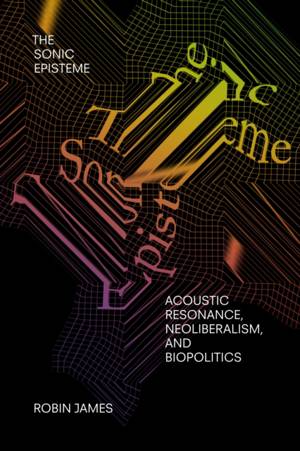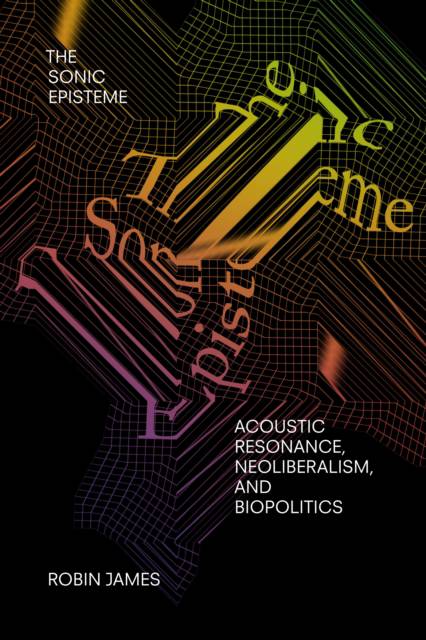
- Afhalen na 1 uur in een winkel met voorraad
- Gratis thuislevering in België vanaf € 30
- Ruim aanbod met 7 miljoen producten
- Afhalen na 1 uur in een winkel met voorraad
- Gratis thuislevering in België vanaf € 30
- Ruim aanbod met 7 miljoen producten
Zoeken
The Sonic Episteme
Acoustic Resonance, Neoliberalism, and Biopolitics
Robin James
Paperback | Engels
€ 56,45
+ 112 punten
Omschrijving
In The Sonic Episteme Robin James examines how twenty-first-century conceptions of sound as acoustic resonance shape notions of the social world, personhood, and materiality in ways that support white supremacist capitalist patriarchy. Drawing on fields ranging from philosophy and sound studies to black feminist studies and musicology, James shows how what she calls the sonic episteme--a set of sound-based rules that qualitatively structure social practices in much the same way that neoliberalism uses statistics--employs a politics of exception to maintain hegemonic neoliberal and biopolitical projects. Where James sees the normcore averageness of Taylor Swift and Spandau Ballet as contributing to the sonic episteme's marginalization of nonnormative conceptions of gender, race, and personhood, the black feminist political ontologies she identifies in Beyoncé's and Rihanna's music challenge such marginalization. In using sound to theorize political ontology, subjectivity, and power, James argues for the further articulation of sonic practices that avoid contributing to the systemic relations of domination that biopolitical neoliberalism creates and polices.
Specificaties
Betrokkenen
- Auteur(s):
- Uitgeverij:
Inhoud
- Aantal bladzijden:
- 256
- Taal:
- Engels
Eigenschappen
- Productcode (EAN):
- 9781478006640
- Verschijningsdatum:
- 2/12/2019
- Uitvoering:
- Paperback
- Formaat:
- Trade paperback (VS)
- Afmetingen:
- 152 mm x 229 mm
- Gewicht:
- 340 g

Alleen bij Standaard Boekhandel
+ 112 punten op je klantenkaart van Standaard Boekhandel
Beoordelingen
We publiceren alleen reviews die voldoen aan de voorwaarden voor reviews. Bekijk onze voorwaarden voor reviews.











